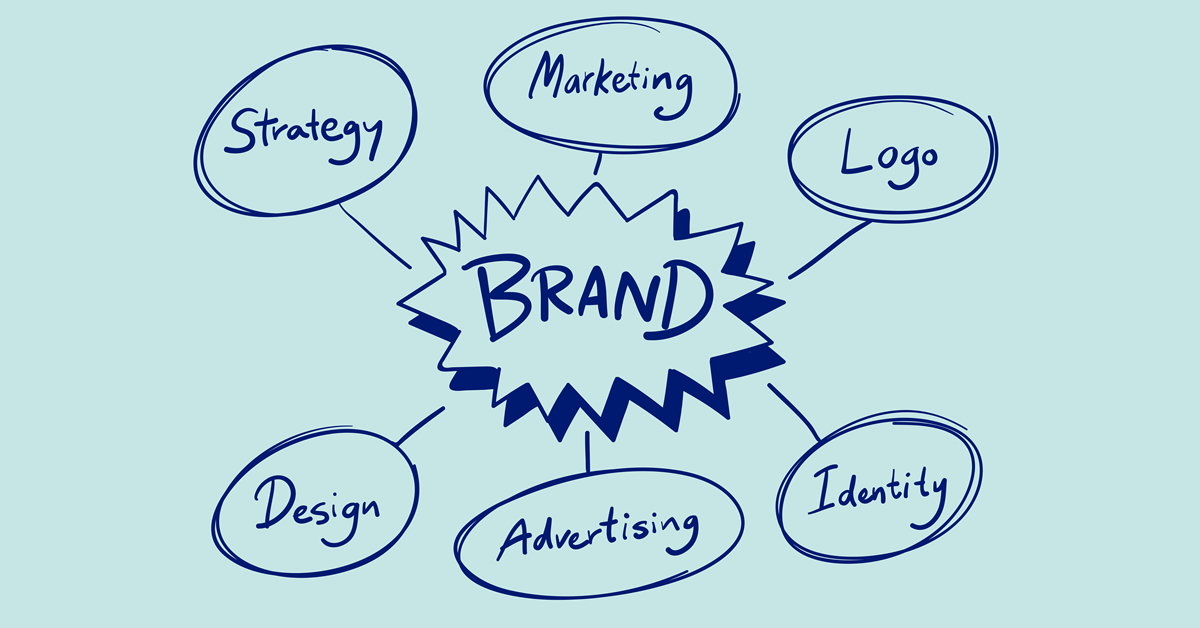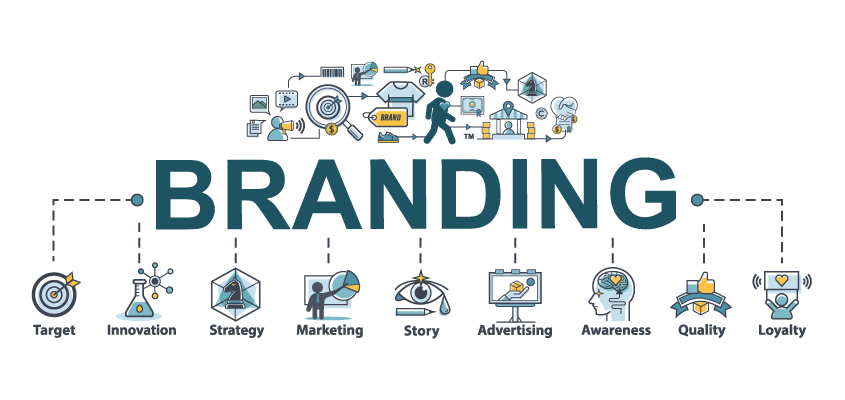Why Every Company Demands Robust Branding for Competitive Advantage
Why Every Company Demands Robust Branding for Competitive Advantage
Blog Article
Why Robust Branding Is Vital for Market Management
In today's competitive landscape, robust branding arises as a vital element for attaining market management. A distinct brand name identification not just establishes a firm aside from its competitors however also grows trust fund and psychological connections with consumers. These elements are crucial for cultivating commitment and motivating repeat service, yet numerous companies ignore the deeper implications of their branding approaches. As we check out the multifaceted nature of branding, it comes to be noticeable that the stakes are high for those who stop working to recognize its value fit long-term organization success. What are the certain strategies that can boost a brand to this esteemed standing?
Comprehending Brand Identity
Continually acknowledging the importance of brand name identity is essential for any kind of company aspiring to achieve market management. Brand identification incorporates the aesthetic aspects, messaging, and total understanding that identify a business from its competitors. It works as a structure for exactly how consumers interact and regard with a brand name, playing an important function in shaping their expectations and experiences.
A well-defined brand identity interacts the core worths and objective of an organization, creating a psychological connection with its target market. Aspects such as logo designs, color pattern, typography, and tone of voice must line up cohesively to share a constant message across all systems. This consistency enhances brand acknowledgment and promotes consumer loyalty.
In addition, brand identity is not just shallow; it reflects the credibility and integrity of a business. It should be meticulously crafted to resonate with the designated target market while remaining versatile to evolving market fads. Organizations that prioritize a solid brand identity can efficiently distinguish themselves, build a positive reputation, and cultivate a loyal customer base. Inevitably, a durable brand name identity is vital for browsing affordable landscapes and sustaining long-term success.
Building Consumer Trust Fund
A strong brand name identification lays the groundwork for building consumer count on, a key part in accomplishing market management. Count on is not merely a psychological reaction; it is a strategic possession that can considerably affect buying choices and brand commitment. Business that cultivate transparency, integrity, and uniformity in their messaging and actions cultivate a complacency amongst customers.
To build this trust fund, brand names should supply on their pledges. This indicates guaranteeing that item high quality fulfills customer expectations which service experiences are receptive and positive. Moreover, constant communication enhances reliability; when clients recognize what to expect which their worries will be attended to, their self-confidence in the brand deepens.
Social evidence also plays an important duty in establishing trust fund. Favorable reviews, endorsements, and endorsements from reputable resources enhance a brand name's reputation and can persuade possible clients. Furthermore, engaging with consumers through social systems and resolving their issues openly demonstrates liability and commitment.
Distinction in Open Markets
In today's crowded market, differentiation is necessary for brand names seeking to stick out and record consumer interest. With plenty of options offered, customers are frequently overwhelmed, making it critical for brands to establish a special identification that reverberates with their target audience. This differentiation can materialize with numerous components, consisting of item functions, prices approaches, customer care, and brand name messaging.
Reliable differentiation includes not only recognizing what makes a brand name special yet also communicating these distinctions clearly and consistently. Brands must verbalize their value proposal in such a way that addresses certain customer requirements and choices. As an read more example, a firm might focus on sustainability, ingenious modern technology, or individualized client experiences to sculpt out a niche in an affordable landscape.
Furthermore, brand names ought to continually analyze their competitive setting to adapt and improve their distinction strategies. This aggressive method makes certain that they stay appealing and appropriate to consumers as market dynamics evolve. Inevitably, robust branding that stresses differentiation not just promotes brand commitment however additionally places a company as a leader in its sector, paving the means for sustained development and market prominence.
Psychological Connections With Consumers
Psychological links act as an effective catalyst in structure long-term connections between brands and consumers. When customers resonate with a brand name on an emotional level, it cultivates loyalty that transcends plain transactional interactions. Brand names that efficiently evoke emotions-- whether through storytelling, shared worths, or authentic interaction-- produce a feeling of belonging for their customers.
These emotional connections can considerably influence acquiring choices, as customers are often driven by feelings instead of reasoning. A brand name that straightens with customers' addresses or ambitions their discomfort factors can grow a deep-seated loyalty that leads to repeat company and favorable word-of-mouth referrals.
Moreover, psychological branding permits firms to distinguish themselves in crowded markets. By using the sentiments of their target audience, brands can carve out an unique identification that reverberates deeply, making them remarkable and favored over over at this website rivals.
In an age where customers are pestered with selections, a strong emotional connection can be the choosing consider brand preference. Thus, prioritizing emotional interaction is not simply an advertising and marketing tactic; it is a critical essential for brands looking for to establish purposeful partnerships and boost client retention.
Long-Term Business Success
Lasting organization growth rests on the ability to grow durable branding techniques that reverberate with customers in time. A solid brand name not only sets apart a company from its rivals yet also promotes commitment and trust among clients. This lasting partnership is necessary for ensuring repeat company, which dramatically adds to income security and development.
In a significantly competitive market, brand names that connect a clear and consistent message are more probable to grow. This consistency reinforces brand identity, making it less complicated for consumers to recall and select the brand over others. Robust Branding. Because of this, a well-established brand can adapt to market modifications without losing its core essence, permitting technology without estranging faithful clients
Moreover, durable branding creates a platform for customer interaction, wherein businesses can collect feedback and adjust their offerings as necessary. This repetitive procedure not just boosts client contentment yet additionally constructs a neighborhood around the brand name, promoting a sense of belonging.
Conclusion

Organizations that prioritize a strong brand identity can properly separate themselves, build a positive reputation, and grow a loyal customer base.A Read Full Article solid brand identification lays the groundwork for constructing consumer trust fund, a key element in attaining market leadership. A strong brand name not only differentiates a business from its rivals however likewise promotes loyalty and trust amongst customers. As a result, a well-established brand can adjust to market adjustments without losing its core essence, allowing for advancement without alienating faithful clients.

Report this page